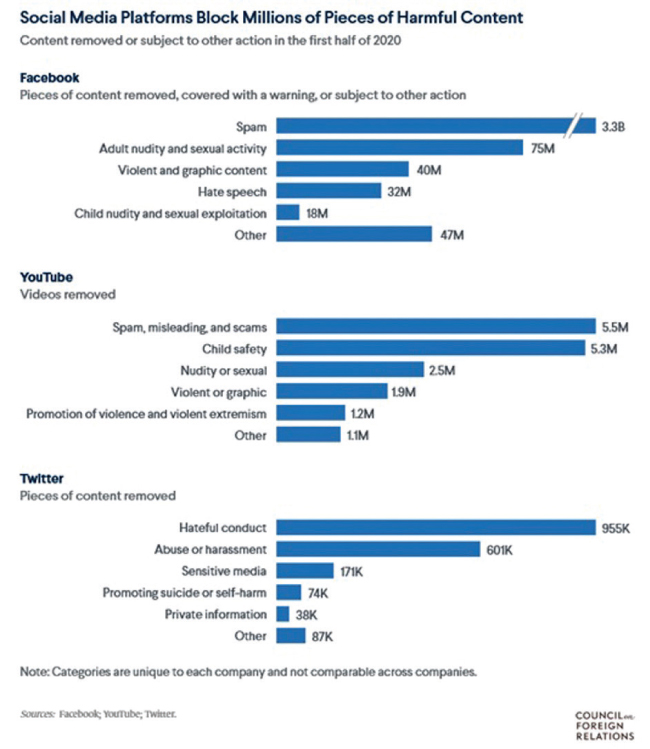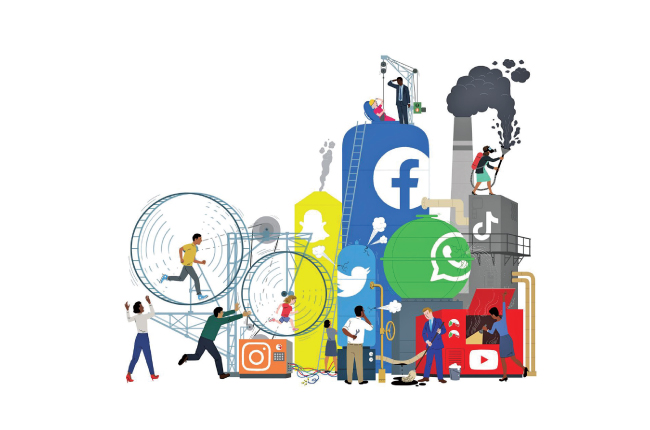Social media refers to online platforms and websites that allow users to create and share content as well as engage in social networking. These platforms enable users to interact with one another by sharing texts, images, videos, links, and other forms of content. Users can connect with friends, family, colleagues, and even strangers worldwide, while forming online communities based on shared interests, hobbies, or demographics. Social media platforms typically consist of various features such as profiles, news feeds, messaging, commenting, liking, sharing, and tagging. Some of the popular social media platforms include Facebook, Instagram, Twitter, LinkedIn, Snapchat, TikTok, and YouTube.
Most countries have their own laws or regulations regarding social media and they have faced charges for the offences or the violations. Some countries have specific statuses applying to specific social media behaviour, like cyberbullying, while others can prosecute using other statuses not specifically limited to social media. In 2017, Germany enacted the NetzDG (Network Enforcement Act), which requires social media platforms to promptly remove illegal content or face significant fines.
Russia introduced various laws in 2021 aimed at regulating social media platforms, including requirements for data localisation and restrictions on content deemed extremist or harmful to state interests. In Australia, The Enhancing Online Safety Act 2015; the Criminal Code Amendment (Sharing of Abhorrent Violent Material) Act 2019; the Social Media Bill 2021 were introduced to appropriately and adequately regulate social media platforms in Australia. In the USA they have several acts to regulate Social Media behaviours. Social Media Privacy Protection and Consumer Rights Act of 2018. Previously introduced, Section 230 of the Communications Decency Act is the most important provision in the United States for regulating social media. Due to receiving a high number of complaints, the United Kingdom introduced the Online Safety Act in 2023.
Hate speech and misinformation
Most popular social media platforms are run by United States companies and have similar content moderation policies. The following charts show the violations that occurred through harmful posting on several social media platforms globally.
When compared to other countries, Sri Lanka also suffers to a larger extent from cybercrime. Disinformation through Social Media posts poses a major risk to the Sri Lankan community. According to the study, ransomware encounters in Sri Lanka were 100% more than the global average. While the global malware encounter rate has decreased by 34%, the malware encounter rate in Sri Lanka was 109% more than the global average.
According to CID, gathering valid evidence against the accused from social networks is a challenging task due to the large extent of fake profiles compared to the global average. As per the CERT report in 2021, 16975 social media complaints were recorded. A higher number of cybercrimes have been seen through social media privacy violations and impersonation through fake profiles as the percentage of social media cybercrime has increased from 74.7% to 97.4% in 2020.
By introducing the new Social Media Bill, the government expects to moderate dangerous content on social media effectively, even on fast-paced platforms such as X (formerly Twitter) and Facebook. Social media posts such as those that promote hate speech and misinformation, dangerous challenges that put teenagers at risk, or those that glamorise suicide, pose a significant threat to society. These posts cause harm spreading exponentially, like an infectious disease. Social media regulation can occur through various means, including governmental policies, platform policies and guidelines, industry standards, and user self-regulation.
Transparency is the key factor that needs to be prioritised in social media. Increased openness would serve to instil confidence among users and authorities, as well as highlight areas where further regulation is required. Governments may seek to ensure that social media platforms operate fairly and transparently, particularly in their algorithms and content moderation practices. Regulation may require platforms to disclose how algorithms are used to prioritise content or to provide mechanisms for users to appeal moderation decisions. It is necessary for social media platforms to collaborate with governments, civil society groups, and other stakeholders to create a set of best practices and rules for controlling harmful content on these platforms.
Effective mechanisms
Stakeholders may collaborate to produce more effective and nuanced solutions that take into consideration the complexities of social media. Social media platforms can host content that is harmful or illegal, such as hate speech, terrorist propaganda, or content promoting self-harm. Regulation may seek to ensure that platforms have effective mechanisms in place to remove or restrict access to such content. Social media can influence public opinion and political discourse, making it vulnerable to manipulation by malicious actors, including foreign governments.
Regulation may aim to safeguard the integrity of democratic processes by combating election interference, disinformation campaigns, and other forms of online manipulation.
Social Media Laws are required to address the crimes emerging due to the excessive use of social media platforms. The main objective of this Act is to grant legal recognition to transactions performed via electronic data exchange or any other means other than paper-based communication. Also, it provides legal recognition to digital signatures and gives legal sanctions to enable e-governance. Under this law, penalties are prescribed for different frauds and crimes involving computers or networks. Overall, social media regulation is often motivated by a desire to balance the benefits of online connectivity and communication with the need to protect individuals and society from potential harms associated with the misuse or abuse of these platforms.








